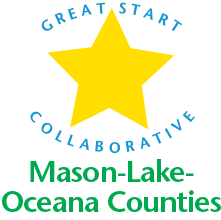
TALKING IS TEACHING
TALK, READ, AND SING WITH YOUR CHILDREN FROM THE START.
Talking Is Teaching: Early Literacy
What does it take to build a strong reader? This is a process that begins during the earliest days, weeks, and months of a child’s life through rich, stimulating back-and-forth interactions with their caregivers. Parents responding to their baby’s babbles, coos, and gestures is an early form of communication that serves a critical purpose. And when parents share books, conversations and songs with their children, they are helping to build a foundation for them to become strong readers and writers when they enter school.
Parents can help children building early literacy skills right from the start! Check out our resources for fun tips and ideas to make everyday moments opportunities to nurture growing readers and writers.
Talking Is Teaching
“Talking is Teaching: Talk, Read, Sing,” a public awareness and action campaign designed to share information with parents about the critical role they play in their child’s early brain and language development, and to support them with concrete tools to talk, read and sing with their young children from birth.
Quality Interactions Make Small Moments Big!
Parents and caregivers have an incredible opportunity to impact on the growth and development of their child’s brain beyond just the number of words they speak, read, or sing with them.
Talk, Read, Sing Together Every Day
From bath time to meal time, check out our tips for incorporating talking, reading, and singing into your everyday routine.
Talking Is Teaching: Early Math
Children learn language through relationships and in context with the world around them, so this campaign also seeks to highlight key concepts in early math to encourage families to incorporate activities and language-rich conversations about numbers, counting, shapes, spatial relations, and patterns into their daily lives. When families explore and talk about early math concepts with young children, they not only build important early math skills, but can also boost children’s reading ability.
The great news is that math is all around us. Check out our featured resources for simple ways to introduce early math concepts to your child during everyday activities.
Let’s Talk About Math
This interactive guide features fun and easy math activities that you and your child can do anywhere, from driving in your car or shopping for groceries, to doing laundry or setting the table. Read them, listen to them, or watch them as videos!
Talk, Read, Sing About STEM!
Children begin discovering the world around them from the moment they are born. When you talk, read and sing with your child, you’re helping her learn. It can be as simple as counting your baby’s toes during bath time, asking your toddler a question about the sky, or encouraging preschool-age children to build with blocks!
Count By Numbers
Your child is beginning to develop an understanding of math—even before she can say number words out loud. Once she can say number words, she can begin to match the words to set size and then count the set. For example, “Look at the spoons. There are three! One, two, three.” You can help her do this by counting out loud together.
Talking Is Teaching: Early Social Emotional
A large body of research shows that children with a strong social-emotional foundation demonstrate stronger academic achievement, and are more likely to graduate high school, go to college, and fare better on overall wellness and other positive long-term outcomes.
Setting Limits With Love
Young children depend on their parents and caregivers to provide them with a stable and loving environment so they can learn and grow. An important way that parents and caregivers can help their young children feel safe and secure is by participating in activities with them like talking, reading and singing every day.
Small Children Have Big Feelings
When you talk, read, and sing with your child in sensitive, loving, and responsive ways, you build their brain and help them develop the social-emotional skills they need to succeed in school and life.
Support Social Emotional
Your child’s behavior says a lot about how they’re feeling at that time. The way they express their feelings depends on their age and development. Babies may cry when they’re hungry, uncomfortable, or tired.







